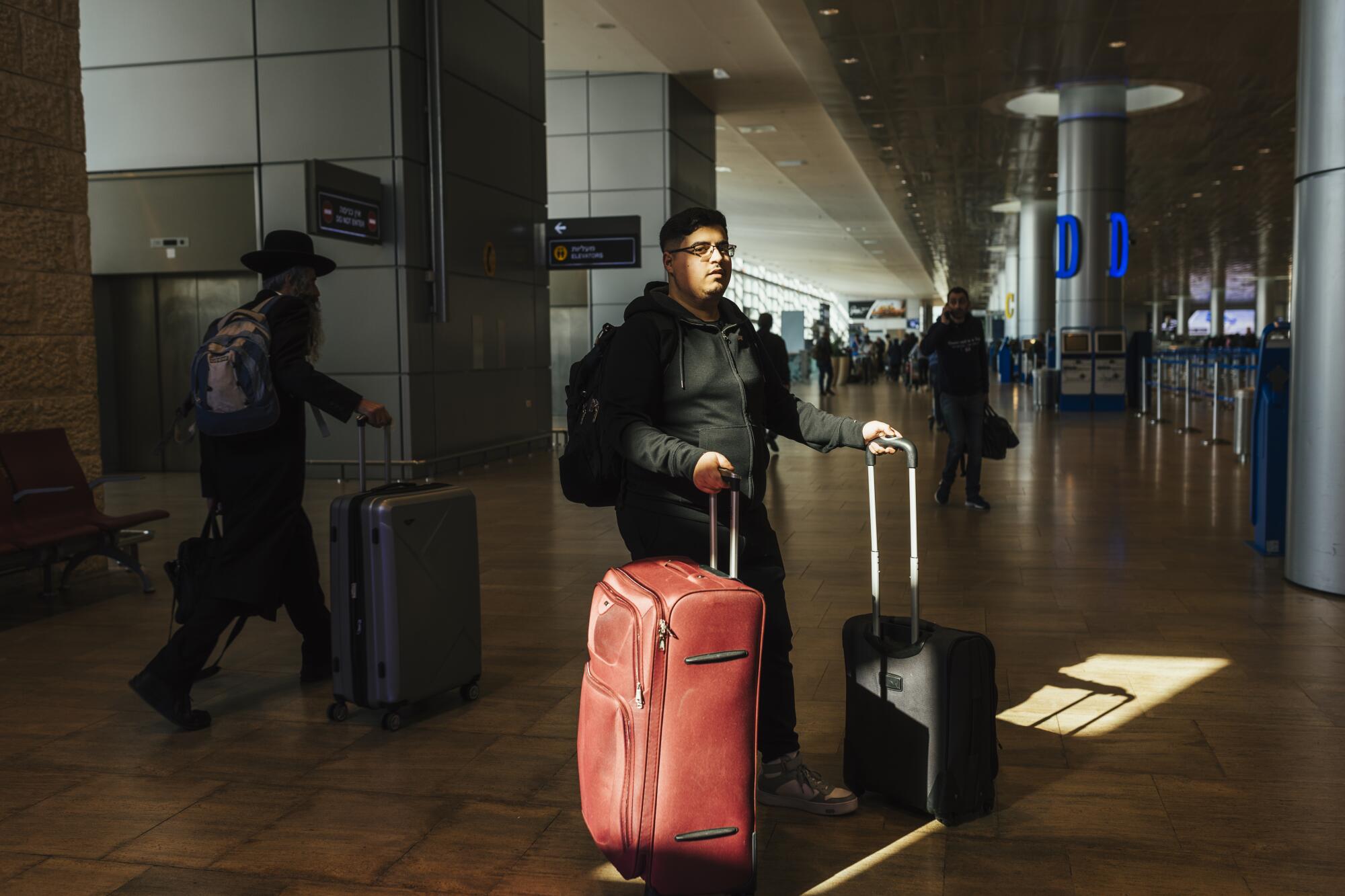
RISHON LEZION, Israel — Yoel Levy had just woken up in his apartment outside Tel Aviv one Saturday last fall when he received a long-awaited phone call. It was his friend Israel Amir, who was in southern Mexico for a rescue operation.
“I have my son!” Amir told Levy.
The young men shared an extraordinary past. Both were raised in Lev Tahor, a fringe Jewish sect that has fled from country to country over the last decade, on the run from authorities and child abuse allegations. Branded a cult by the Israeli government, the group is thought to have roughly 300 adherents scattered around the world.
Levy escaped five years ago, when he was 16. Amir fled a year later at 19, leaving behind the woman he said he was forced to marry — one of Levy’s aunts — and their infant son.
Levy’s mother and eight of his siblings remained in the group, and he longed to see them again. He hadn’t spoken with any of them since running away, but he had been working with a private team of attorneys and former Israeli intelligence officers trying to break up the group and bring its leaders to justice.
Now the plan had come to a head.
Amir explained that at dawn the previous day, he had accompanied Mexican police, Yiddish interpreters and a former Mossad agent on a raid of two houses in the jungle. They brought out about 30 Lev Tahor members, including his son.
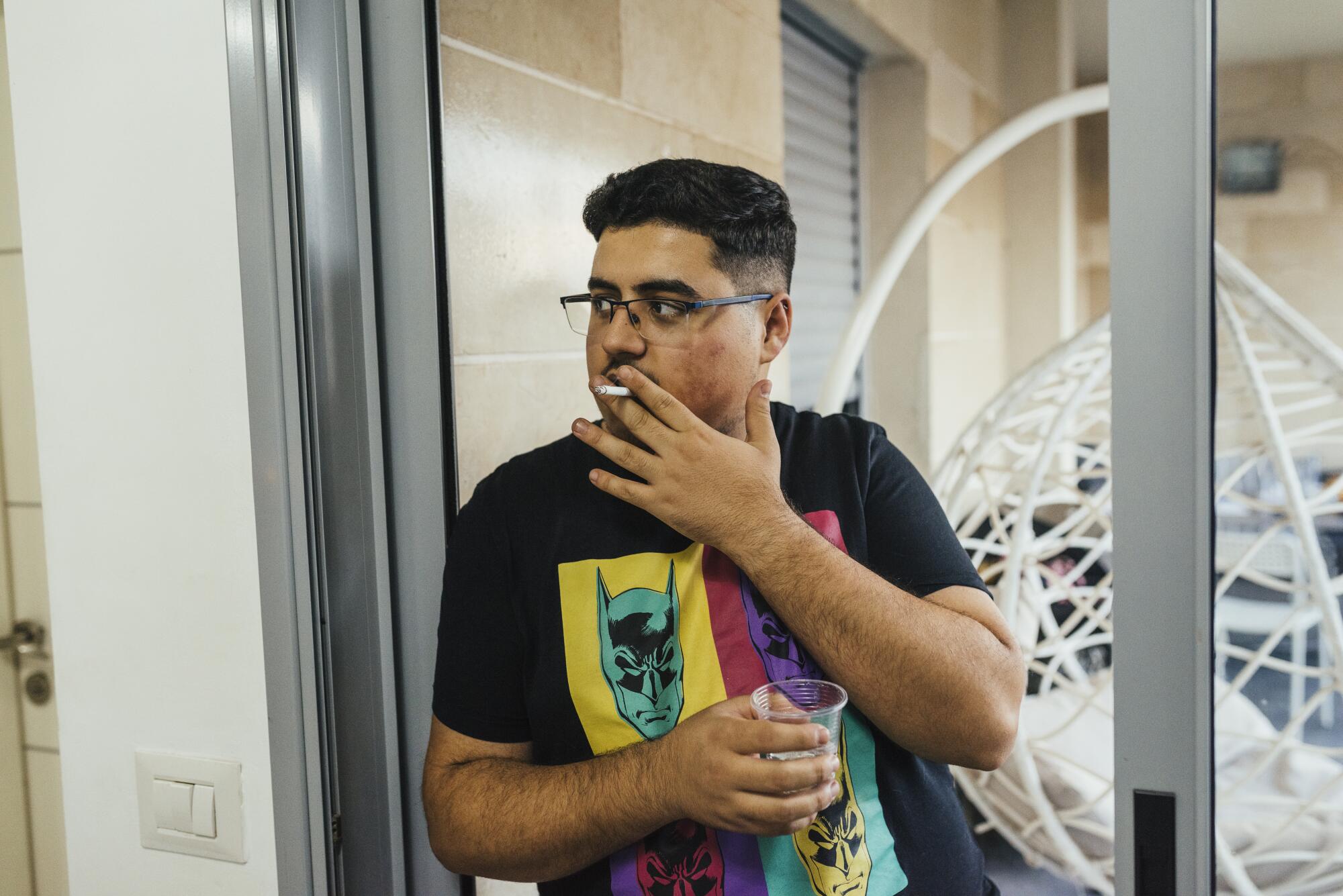
Amir told Levy that he helped authorities identify two wanted men who were arrested on suspicion of human trafficking. He also spotted Levy’s 16-year-old brother.
Levy went to his balcony and lighted a cigarette to calm his nerves.
“I’m going to go there,” he told Amir. “I’m going to get him.”
::
One of Levy’s earliest memories is his first haircut. It was a ritual ceremony led by Shlomo Helbrans, the founder of Lev Tahor and an intimidating figure to a 3-year-old raised to revere him.
It took place in Helbrans’ apartment in Ste.-Agathe-des-Monts, a resort town north of Montreal that had become the group’s latest refuge.
Helbrans had taught at a Hasidic school in his native Israel before he started Lev Tahor in the 1980s, taking the name — which means “pure heart” — from a psalm. Keeping with his belief that Jews shouldn’t inhabit Israel until the arrival of the Messiah, he moved the group to New York.
He ran a religious school in Brooklyn, N.Y., but got into trouble after the family of a 13-year-old student reported the boy missing and accused Helbrans of brainwashing him. The boy reappeared two years later, saying he had left his family by choice, but in 1994 Helbrans was convicted of kidnapping and served two years in prison before being deported to Israel.
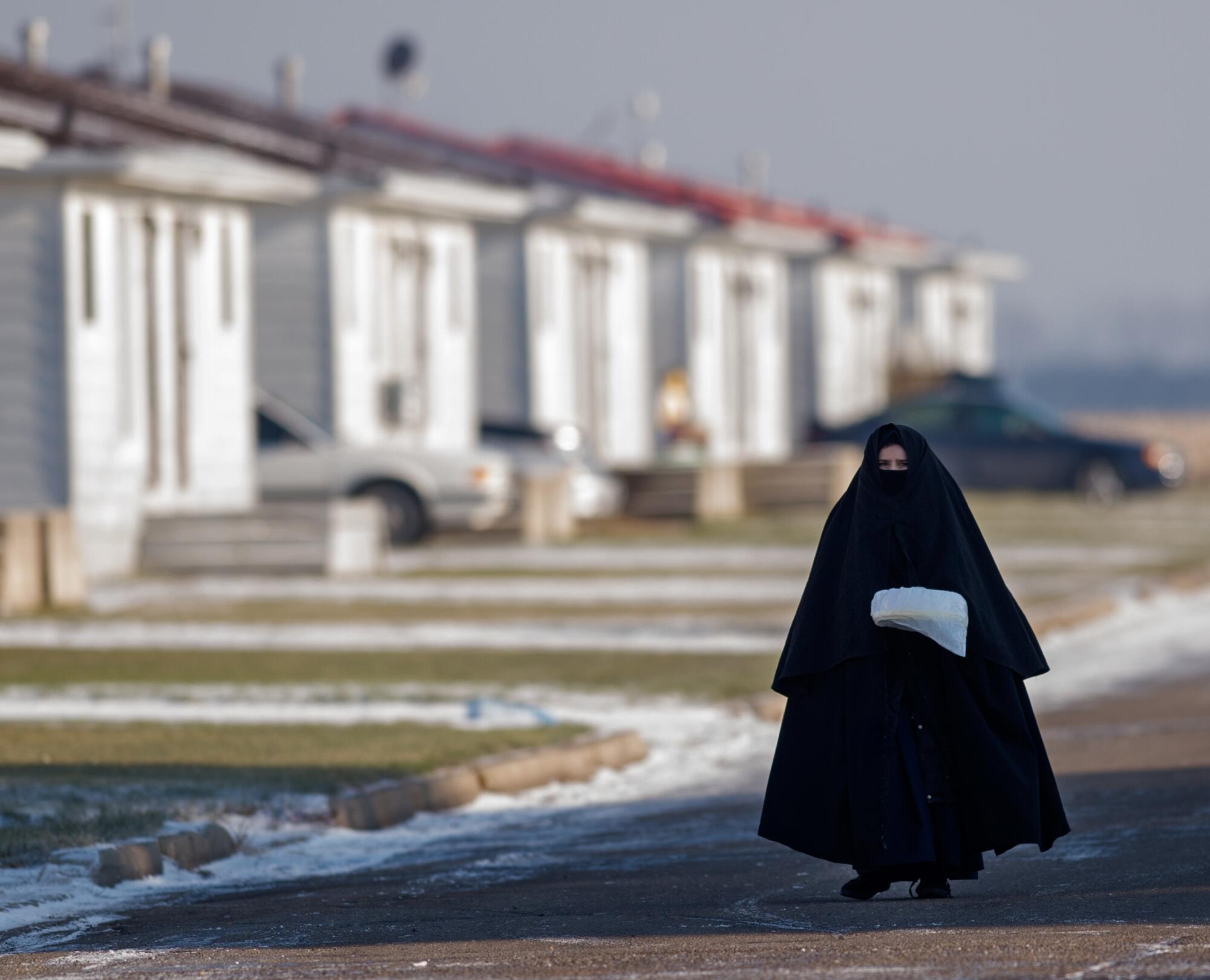
He left for Canada shortly after and won asylum on the grounds that he had been a victim of persecution in Israel for his religious opposition to the country’s existence as a Jewish state.
Levy’s mother and father had followed Helbrans to New York, where they got married, and then to Canada. They settled in a neighborhood with about 50 other Lev Tahor families, including his maternal grandparents and their other children. Levy, born in 2001, was his parents’ second child.
Yiddish was the group’s language of choice and the only one Levy spoke well. Boys and girls studied in separate schools and did not intermingle. A few people had jobs outside the community, but families relied on child welfare payments and charity. Levy’s father was often away soliciting donations.
In some respects, the group was like many ultra-Orthodox sects. Even its rejection of Zionism was not unique.
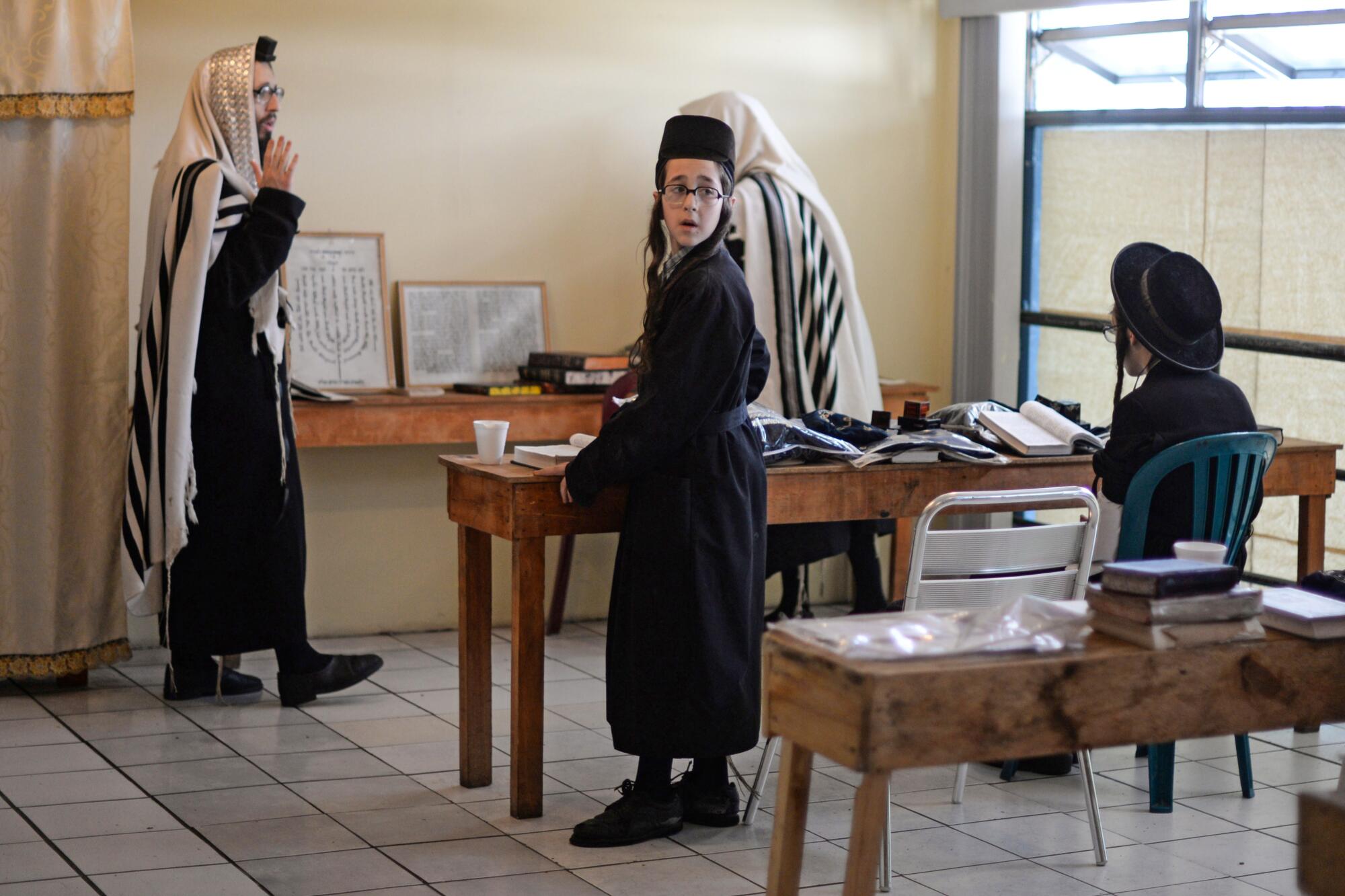
But Lev Tahor took modesty, gender segregation, dietary restrictions and rejection of secular culture to extremes.
Members were expected to marry in their midteens. Store-bought chicken was banned out of the belief that genetically modified animals were not kosher. English was not taught. While men wore traditional ultra-Orthodox garb, including wide fur hats known as shtreimels, the dress code for women was highly unusual: long black robes that led some media to call the group “the Jewish Taliban.”
Children were taught to look at the ground while walking to school to avoid seeing non-Jewish neighbors or secular temptations such as swimming pools. Unlike Hasidic sects that connect to God through dancing, music and other expressions of joy, adherents of Lev Tahor lived somberly. Even laughing was discouraged.
Extremism veered into alleged abuse. The group would often separate children from their parents and place them with other families, according to several former members.
Levy knew little about his parents and had tense relationships with his siblings. In Lev Tahor, children were raised to turn each other in for rule-breaking — which could lead to beatings.
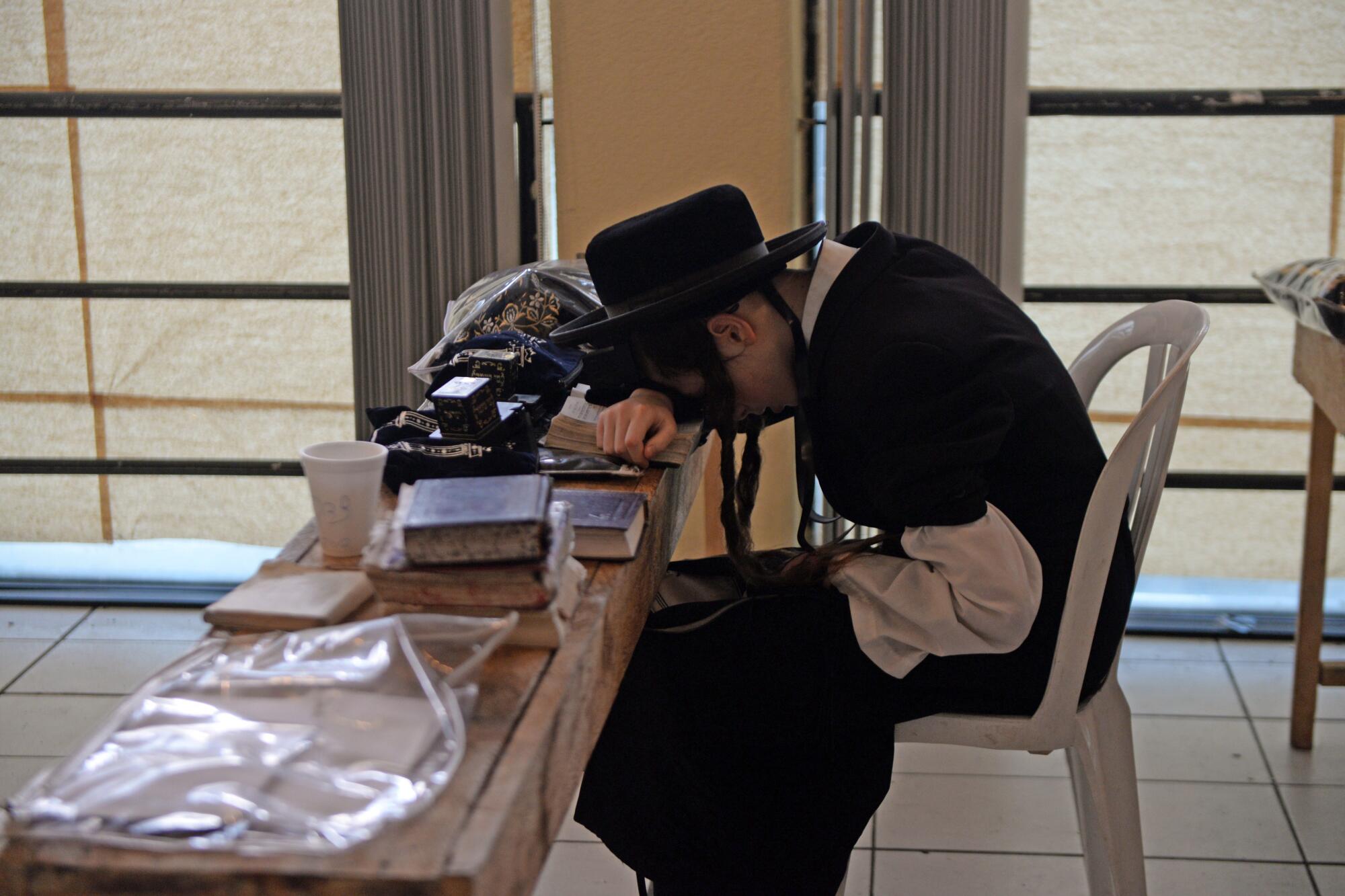
Nearly every day someone in Levy’s class was subjected to corporal punishment, with a teacher once joking that he needed a mechanical hand to slap children for him. Levy said his cousin was beaten with a stick for glimpsing a neighbor’s pool as he walked to school.
None of this seemed extreme to Levy — at least not yet. It was the only life he knew.
When he was around 8, Levy decided he liked the idea of wearing glasses, so he pretended his vision was faulty. When Levy was caught in the lie, Helbrans said that he would be punished with “a few pats.”
The entire school was called into a room with a stage where Levy says a teacher beat him with a belt for what seemed like half an hour. When it was over, Levy kissed the teacher’s hand as the children had been taught. He struggled to walk, and his mother cried when she saw him.
Later, with the community under investigation by Quebec authorities, Levy recalled, a teacher instructed him and his classmates to answer “no” if asked whether they were ever hit.
“It doesn’t count as a lie,” said the teacher, explaining that it’s what God wanted them to do.
::
One Saturday in 2013, just before Levy’s 12th birthday, his mother told him the community was moving because authorities were coming for the children.
His family boarded a rented bus the next night to rural southern Ontario. It was Levy’s first time on a highway and he was too excited to sleep, looking out the window at passing semis.
A few months later, the group took off again, and Levy found himself on an airplane to Guatemala. He was growing more curious about the outside world and in small ways beginning to question things he had been taught.
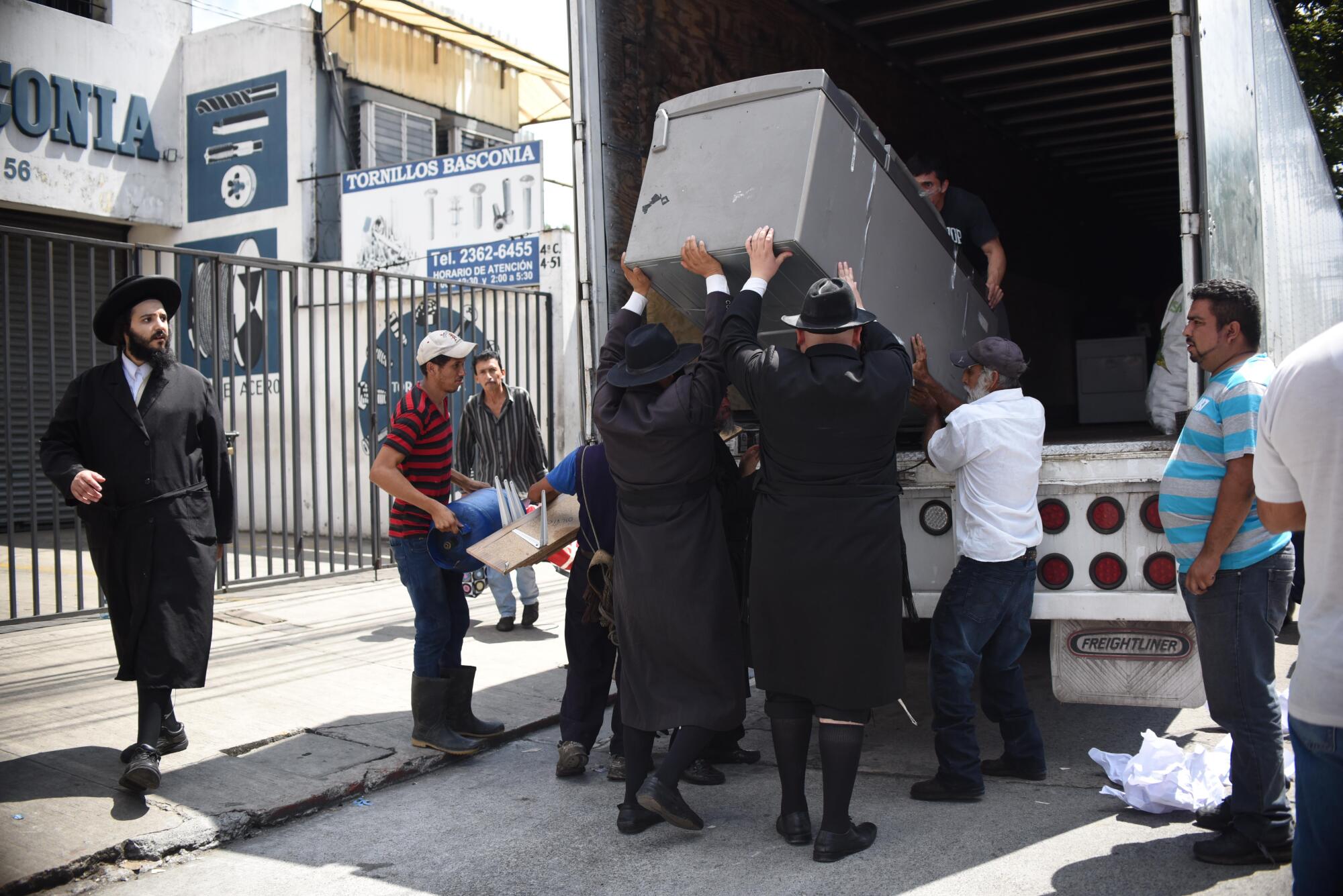
When a man next to him ordered hummus and crackers, he felt a sudden craving, wondering why they weren’t kosher.
In Guatemala City, Lev Tahor members lived in two office buildings. Levy’s family squeezed into two rooms with bunk beds and mattresses on the floor. A floor below him was 14-year-old Amir, whose family had recently arrived from Israel.
There was a courthouse across the street, and the sight each morning of a van delivering handcuffed detainees raised more questions for Levy about Lev Tahor. He wondered whether his own life was any better than the lives of the prisoners.
In 2016, after a police raid reportedly conducted at the behest of Israeli authorities searching for a missing child, the group picked up again. This time members headed to a forested property Lev Tahor bought a couple of hours outside the city in a region called Santa Rosa.
Under a law meant to crack down on violence against women, politicians obtain restraining orders to stop reporters from criticizing them or investigating corruption.
Families lived in huts made of tarps, wood and tin. Every week, Levy was required to provide a detailed report of his schedule, including how long he had spent eating breakfast and talking with his siblings. Still, he managed to pick up some Spanish from Central Americans who had converted to Judaism and joined the group.
Then tragedy struck: Levy’s father got sick over the Sukkot holiday. Lev Tahor leaders initially forbade him to go to a hospital, insisting his family’s faith in God would save him. By the time he got there, it was too late. He died of septic shock and was buried in a clearing near the compound. Yehoshua Levy was 45.
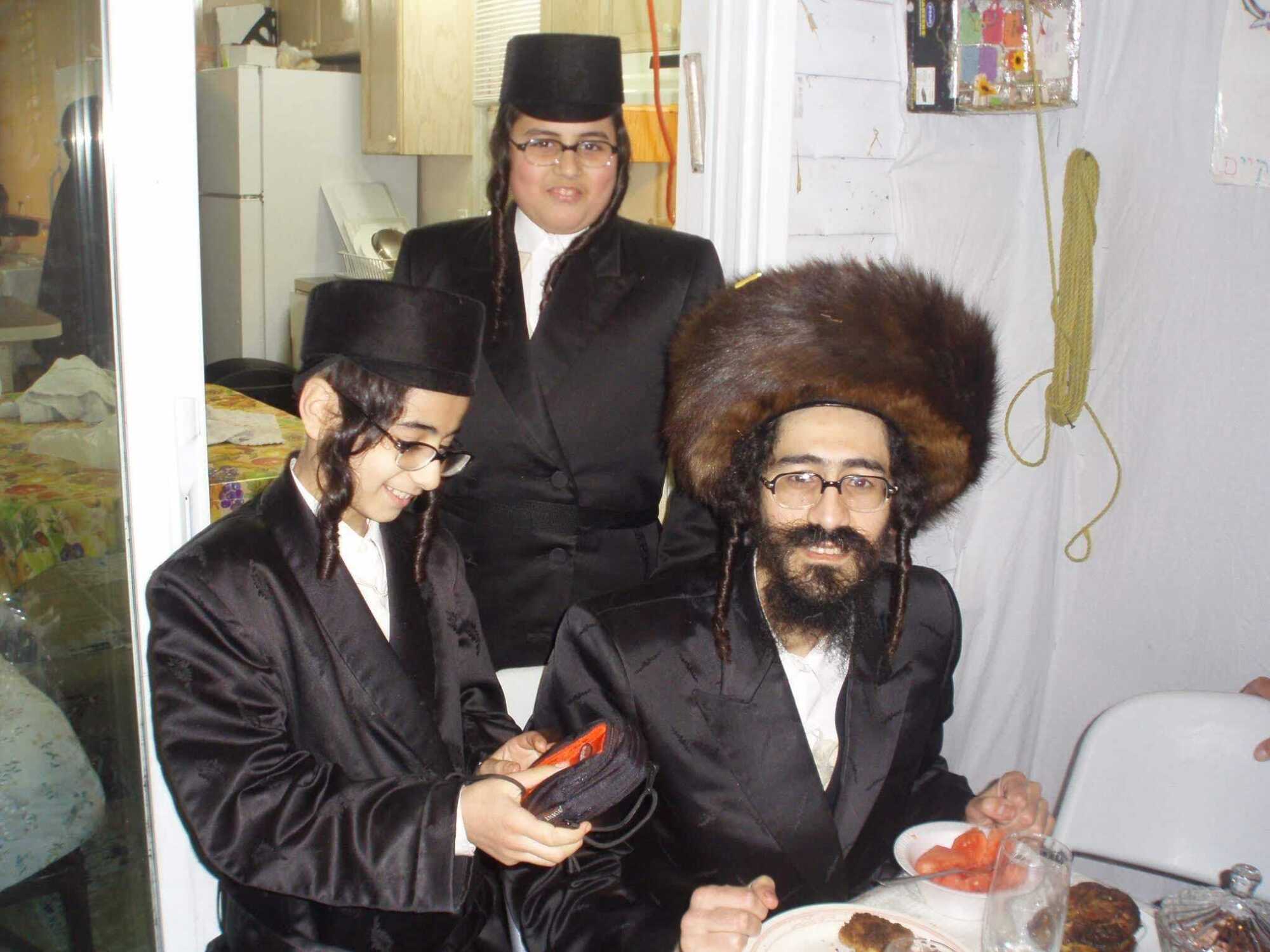
It wasn’t long before Lev Tahor moved again, dispersing to southern and central Mexico in an attempt to evade Israeli authorities who leaders said were zeroing in on the group.
Then came another death — one that would upend the community. In July 2017, during a ritual cleansing in a river, Helbrans, then 54, was swept away.
Everyone returned to the group’s base in Guatemala, and Helbrans was buried near Levy’s father. Helbrans’ son took control of Lev Tahor.
Nachman Helbrans proved to be a harsher leader than his father, banning meat, fish and even the local mangoes. Children as young as 12 were pushed into arranged marriages, according to multiple former members of the group.
At 16, Levy was on the older side when the new leader matched him with a girl the same age. Levy didn’t take the news well, but an uncle told him, “It’s your match and you need to take it. You can’t say no.”
He was engaged that night.
He couldn’t stop thinking about how miserable his life had become. Nachman Helbrans had forced Levy’s mother to remarry and placed most of her 10 children with other families. Levy had been sent to live with one of the leaders and became his personal assistant.
Defying orders to stay away from his mother, he would sometimes come to the entrance of her hut. If he was lucky, she would open the door for a few minutes. Other times he could hear her sobbing on the other side. Both Levy and his brother Mendy said a Lev Tahor official beat them for trying to visit her.
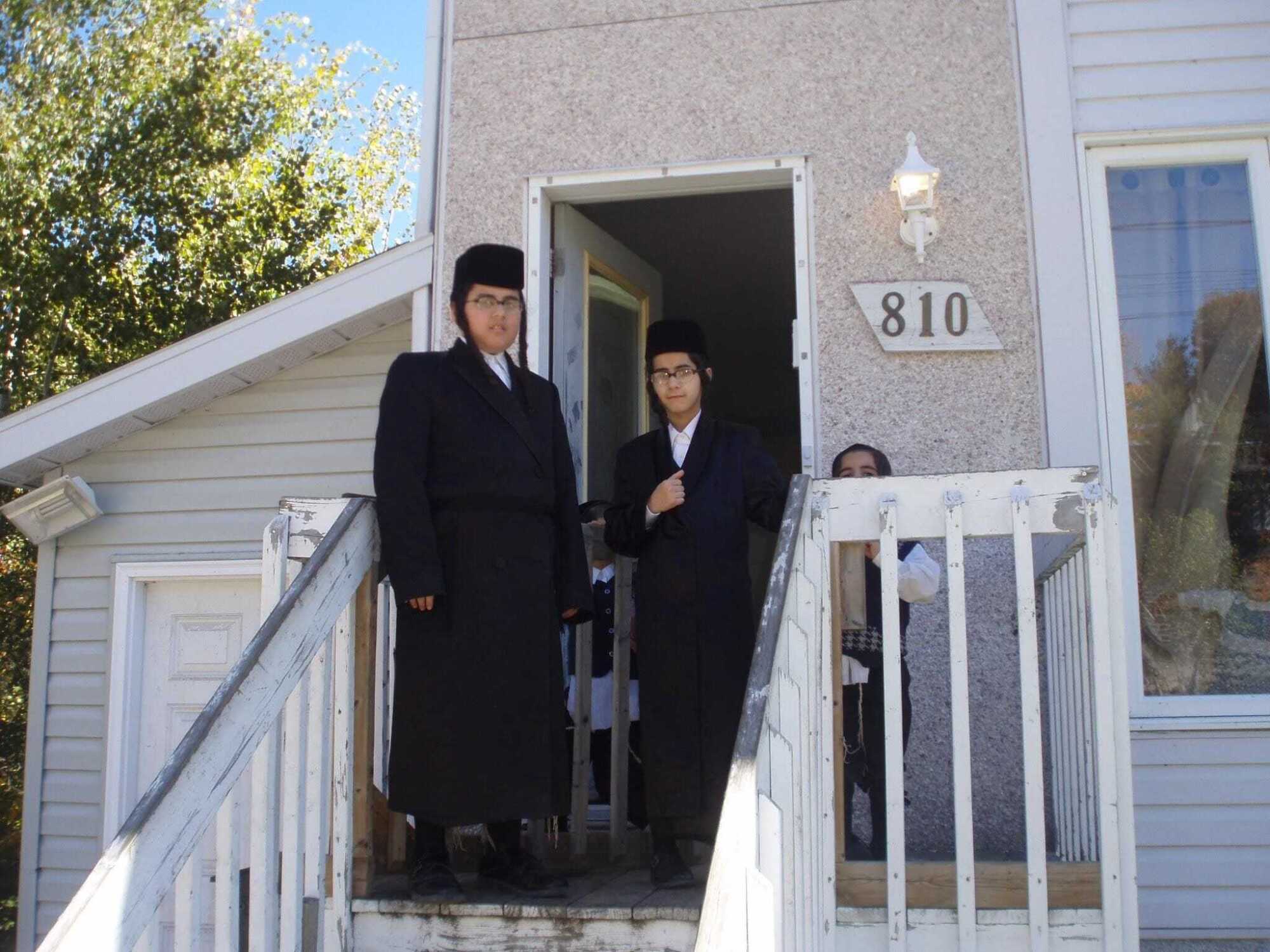
One evening in fall 2018, with his wedding still pending, Levy decided to flee.
He found the telephone number of a convert who had left the group. Then he sneaked into his mother’s hut to call for help.
Later at his home, he stuffed some clothes into a trash bag and anxiously waited until everyone fell asleep. About 2 a.m., he returned to his mother’s hut and slid a short letter under the entrance.
“I’m going and I’m not planning to come back,” it said.
Levy stepped lightly over the crackling leaves. At the compound’s gate, he told an armed guard he had permission to leave because he needed documents in Guatemala City. The guard let him pass. He hitched a ride to a hotel where the convert picked him up.
When he called his mother that morning, she wept.
“You should come back,” she begged. “It’s the only Jewish place.”
::
Levy spent his first few weeks of freedom in a community of Central American converts who had left Lev Tahor.
One gave him a smartphone. Googling for the first time — in Yiddish, Spanish and the little English he knew — Levy discovered YouTube and learned that the U.S. president was a man named Donald Trump.
One day he found out that his brother Mendy — who was 15 and recently engaged to his first cousin — was trying to flee Lev Tahor. Levy and one of the converts picked him up at a hotel in Guatemala City.
The brothers flew to Quebec with help from the Canadian Embassy. They were taken in by Tosh — a Hasidic community just outside Montreal — and each lived with his own foster family in apartments across from each other.
Levy’s English improved dramatically with episodes of “Friends” he watched on his phone — at first not realizing that the characters were actors. He learned that the world was made up of many more countries than the ones where he had lived. He also developed a taste for hamburgers and a passion for watching soccer.
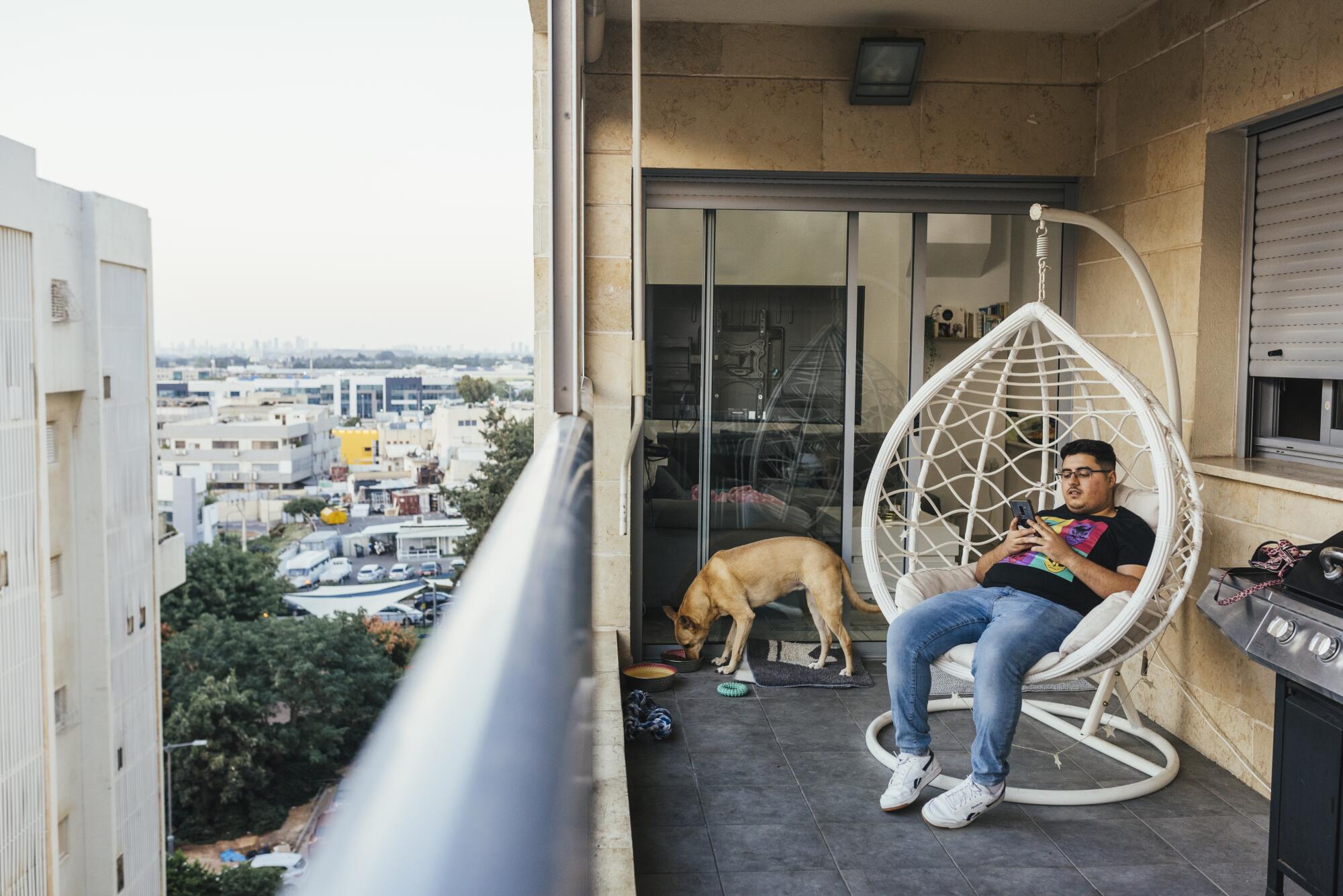
He began to feel he had been brought up on lies, one of the biggest being that the only true Jews belonged to Lev Tahor. Wondering why God would let such a group exist, he slowly rejected religion, shortening his traditional earlocks and using his phone on Shabbat. He found work at a Jewish community kitchen but was fired for not taking prayer breaks.
Many nights, Levy would spend hours scouring the internet to see what the outside world knew about Lev Tahor.
One of the most detailed accounts he found was a 2014 documentary by the Canadian Broadcasting Corp. that described how members — including his own family — had fled their homes in Quebec days before a judge, acting on allegations of neglect, ordered 14 children into foster care. The documentary also featured a former member who told authorities that he was 25 when he married a 15-year-old and that he was advised to punish boys by hitting them with a wire hanger.
Shlomo Helbrans also appeared on camera, saying, “I never marry children against the law.”
In halting English, he also downplayed the use of corporal punishment: “To say that no child never receives ... a slap of his hand, never and ever, is false. But what I can do declare very strongly is that physical punishment of children, we can use in our community a lot less than the Western society.”
Levy also learned that in December 2018 Nachman Helbrans had been detained by Mexican authorities working with the FBI and deported to the United States. Federal prosecutors charged him and three others with kidnapping two children in New York and smuggling them to Mexico after their mother — Nachman’s sister — fled the group.
In Mexico, a growing movement is challenging discrimination against darker-skinned people. Lighter-skinned Mexicans still dominate film, politics and business.
How was it possible, Levy wondered, that Lev Tahor had not been shut down?
::
Several months into his new life, Levy flew to Israel to meet relatives he had never known.
His paternal aunt, Idith Baba, and her husband were worried he wouldn’t know where to go when he landed, so they received special permission to wait for him on the tarmac.
“Yoel! Yoel!” they shouted. He seemed shocked by their hugs.
The next day at their home outside Tel Aviv, Levy asked to go to a barber to get rid of the rest of his earlocks. It was a Friday, and Passover was starting that night.
“I’ll take you Sunday,” his uncle said.
Levy insisted: “I want to do this now.”
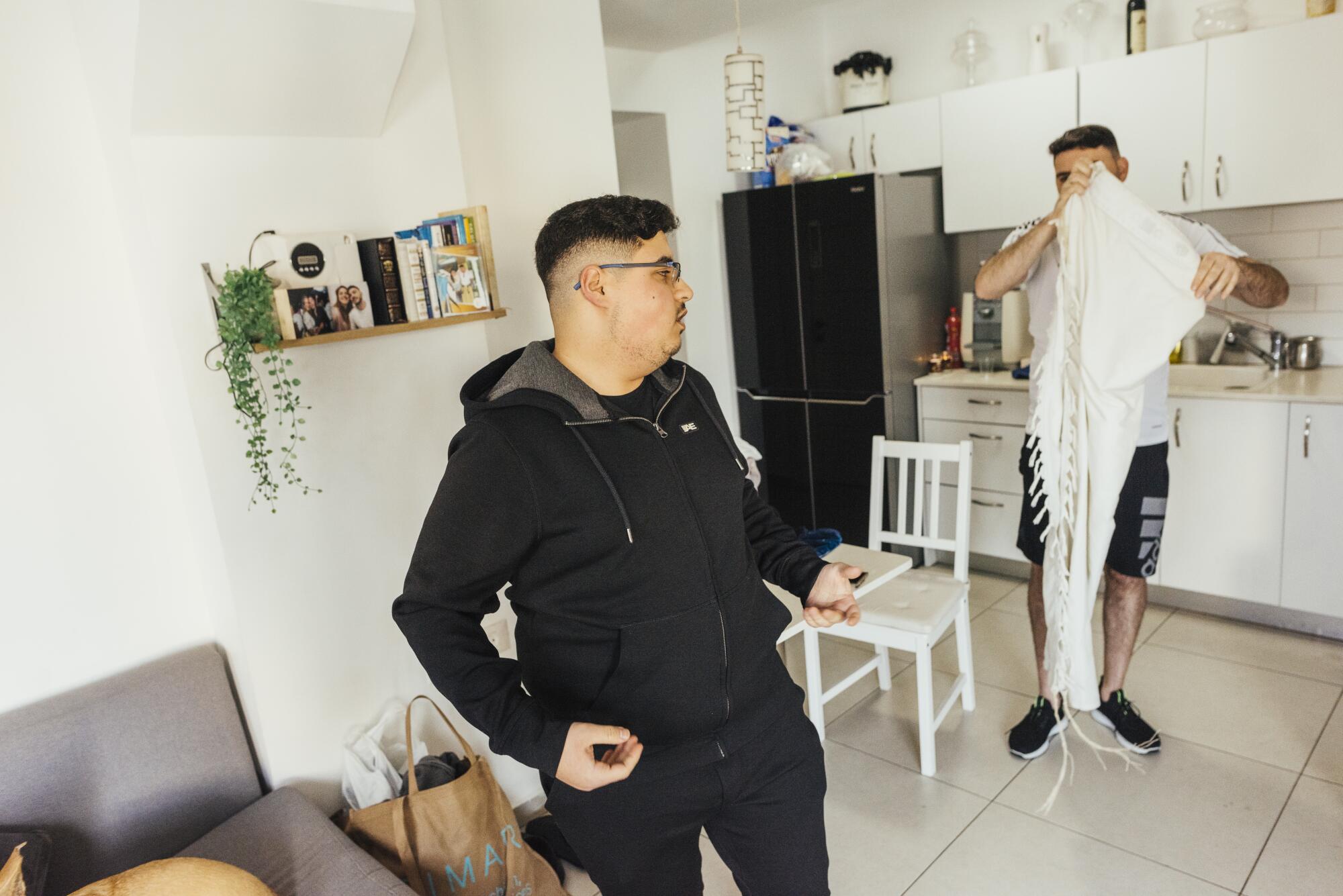
As he spent time with relatives, Levy began to learn more about his parents. His father, Yehoshua, was 17 when he met Helbrans on a bus in Israel in the late 1980s. He had long been curious about religion and soon was studying in a yeshiva in Jerusalem. There he met one of the earliest followers of Lev Tahor — the father of his future wife, Odel.
In 1990, Levy’s father told his family that he was following Helbrans to New York. Yehoshua was 27 when he married Odel. She was 15.
After a relative read that Lev Tahor was being called a cult, the family begged him to return to Israel. But he said he was happy.
Now, three decades later, Levy was growing closer with his long-lost relatives. He decided to move to Israel. It meant leaving his brother Mendy, who found himself unable to shake the belief — instilled by Lev Tahor — that it was a sin to live there.
Levy found work at a pharmacy, and though it pained him to talk about his life in Lev Tahor, he started giving interviews on Israeli television as his Hebrew improved.
By then Amir, Levy’s friend, had escaped from Lev Tahor and moved to Israel too.
Amir wanted justice. Tipped off that a former administrator at the Lev Tahor school in Quebec was visiting Israel, he filed a police report, and the man was arrested. Levy joined his friend in helping police build a case. Prosecutors charged Elazar Rumpler with child abuse and assault — including overseeing the beating Levy said he had received onstage all those years ago.
But in late 2020, Rumpler fled to Guatemala and the case was put on hold. Rumpler has denied the allegations.
In a letter to Israel’s Justice Ministry, Levy asked authorities to work with other countries to have Rumpler arrested.
“It is your responsibility to save my siblings and my mother,” he wrote. “Please do not stand by.”
He never received a response.
In the meantime, other efforts were underway to help people get out of Lev Tahor.
One was a website with a hotline set up by some Hasidic Jews in Brooklyn, who considered the sect “a perversion” of their faith. Working anonymously to avoid compromising their efforts, they aimed to help Lev Tahor adherents recognize that the sect violates Jewish principles.
In fall 2021, members of the Brooklyn group traveled to Guatemala and met with the country’s president to tell him about Lev Tahor. They also flew Levy and other former members to meet with prosecutors there in hopes of building a case against the sect’s leaders.
The other effort was organized by Amir and some of his relatives in Israel, who assembled a volunteer team of former Israeli intelligence officials and lawyers to try to extricate his son from the group.
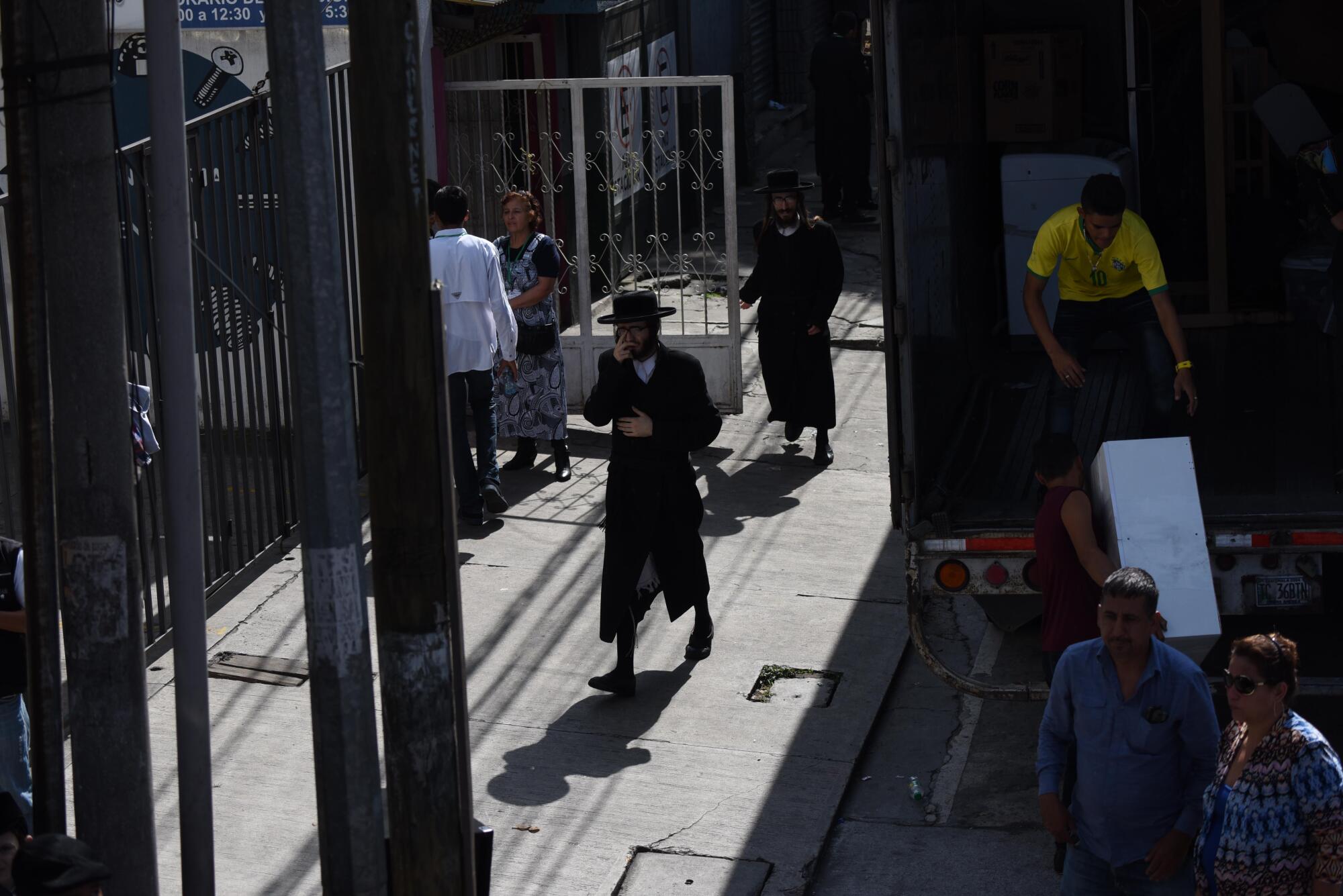
One member of the team, an ex-Mossad agent named Daniel Limor, visited Guatemala on multiple occasions. He flew a drone over the Lev Tahor settlement to take photographs and got onto the property by posing as a businessman interested in buying it to put up a solar farm.
In early 2022, Limor watched the group disperse toward Mexico and began coordinating with officials there.
The effort resulted in a warrant for the arrest of four Lev Tahor adherents in the state of Chiapas that included statements from former members about rampant abuse and neglect.
One told authorities that when he was 7 he was sexually abused and that his father — under orders from Shlomo Helbrans — once beat him until he fainted.
Amir testified that babies had died because their mothers gave birth without medical attention and that he was not allowed to see his parents or siblings for two years even though they lived two floors above him in Guatemala City.
When his 13-year-old sister didn’t want to marry a 19-year-old, she was prohibited from speaking to anyone in the community for a year and developed a stutter, Amir told officials.
In September, Amir arrived in Mexico a few days before the raid. As police barged into Lev Tahor’s homes, men, women and children screamed. Officials eventually brought out Amir’s son.
His wife was there too, but she refused to leave Lev Tahor. She and a few other members were detained by immigration authorities. Levy’s 16-year-old brother — the one Amir had spotted — and about 18 others moved into a Mexican government shelter.
::
To Levy’s relief, after more than three decades, Lev Tahor finally appeared to be falling apart.
Nachman Helbrans was in prison, sentenced in March to 12 years for kidnapping as well as child sexual exploitation; prosecutors showed that after abducting his 14-year-old niece, he reunited her with her adult husband. Several other members were also convicted in the case.
Finding refuge had become Lev Tahor’s priority, with some families traveling as far as northern Iraq or the Balkans. At one point the group contemplated seeking asylum in Iran.
Levy felt optimistic that he would soon be reunited with his 16-year-old brother. His mother and other siblings were still missing, but he dared to hope it would only be a matter of time before they would be out too.
But four days after the September raid, the Israeli Foreign Ministry, calling Lev Tahor a cult, said in a press release that its consul in Mexico had tried to talk with members at the shelter but was rebuffed.
“They have currently refused to leave the sect and move into Israeli custody,” it said.
Two days later, Levy got a call from a reporter at an Orthodox Israeli news site seeking confirmation that the Lev Tahor members had escaped from the shelter.
“What?” Levy exclaimed.
The journalist sent him a video that showed Lev Tahor children and adults wearing long robes and head coverings push past guards at the facility and disappear into the night.
Levy called Amir, who eventually was able to confirm it: They were all gone.
Levy forced himself to breathe. Going to Mexico would now be pointless.
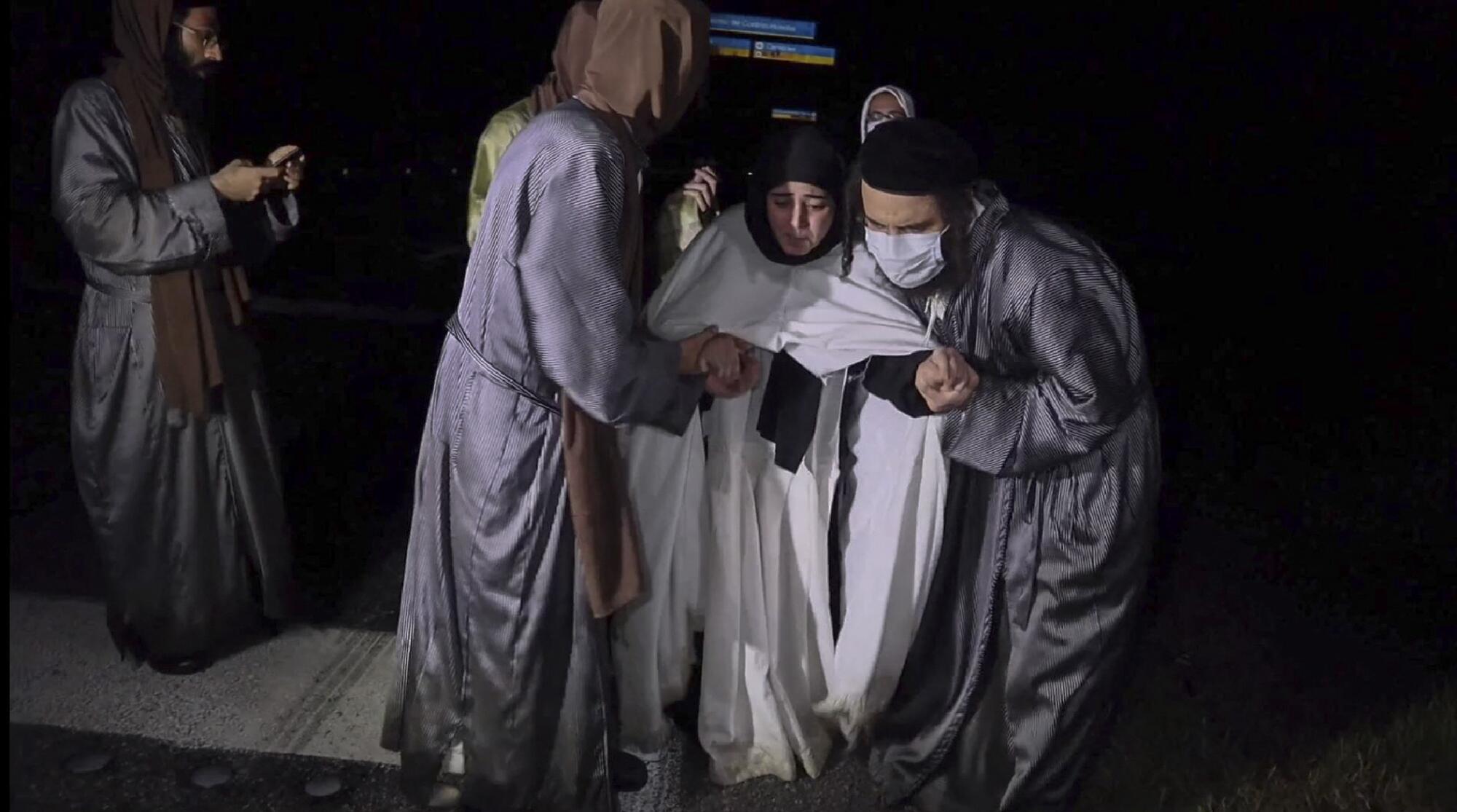

The final blow came when he learned that Mexican authorities released the two men they had arrested during the raid.
An attorney representing them said they were freed because a judge determined there wasn’t enough evidence to prosecute them. Mexican prosecutors did not respond to interview requests and the Israeli Foreign Ministry declined to comment on the escape.
In a videoconference with The Times, Avraham Dinkel and Uriel Goldman, Lev Tahor members who said they were living in Guatemala, insisted that the group had done nothing wrong and was being persecuted for its opposition to the modern-day state of Israel.
“There are people in the Orthodox Jewish community, in the Israeli government, that are hellbent on destroying our community, at whatever cost,” said Dinkel, a Canadian who joined the group around 2014.
He denied that Lev Tahor members view themselves as the only real Jews, but said their form of Judaism is not “watered down” and follows the letter of the Torah. The two men also denied that the group uses corporal punishment. They acknowledged advocating for early marriage — “usually” not as young as 13 — but said nobody is forced.
As for claims that children are separated from their parents, the men acknowledged that Levy and his siblings were sent to live with other families, but only because that is what their mother wanted.
“Nobody is taking away children,” said Goldman, an Israeli who joined Lev Tahor in 1990. “I’m not going to live in a community where people do things against the Torah and against the law.”
Levy and his brother Mendy “were very rebellious children” who are only seeking attention and “celebrity status,” said Dinkel, who denied that the sect bore any responsibility for the death of their father.
Their mother, he said, lives happily in Guatemala, where most of Lev Tahor is now based, and teaches other women how to cook and raise children.
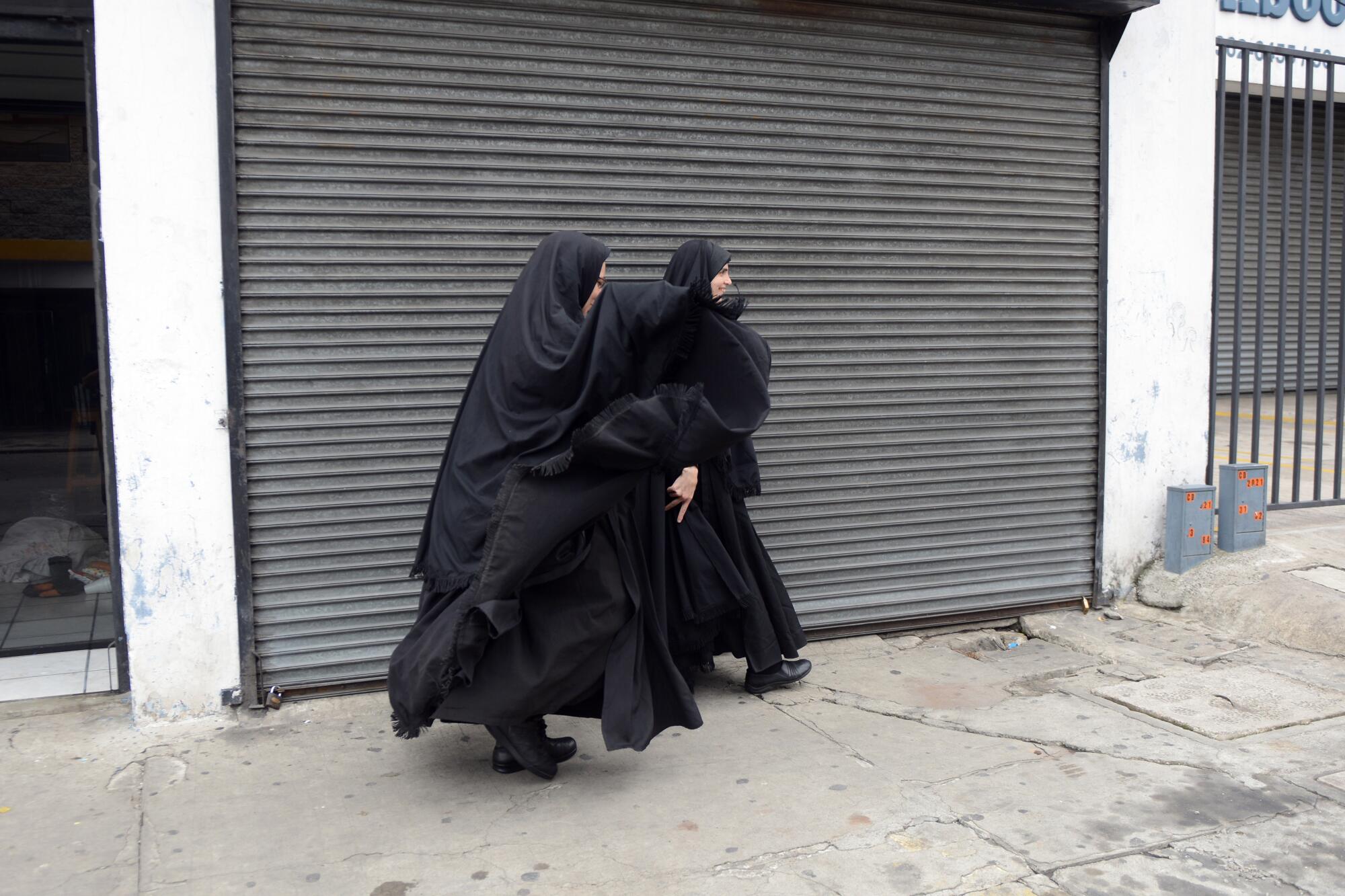
“She is one of the most powerful ladies,” Goldman said.
She “is free to go,” Dinkel said. “We’re all free to go. Nobody is being held back.”
Dinkel and Goldman said that they were in Greece when the raid occurred and that they got in touch with members in the shelter to coordinate the escape. The plan had been for everyone to run toward an exit as food was being delivered. After several taxis picked them up, they fled back to Guatemala.
“If they were actually victims of Lev Tahor, would they escape their so-called rescuers?” Dinkel said.
::
After three years in Israel, Levy felt stuck. He had a small circle of people he loved, including Amir and his son, now 3. But without a high school diploma, he struggled to find a decent job.
Last week he boarded a plane to New York en route to Montreal, where he planned to start a new life near Mendy.

Levy, now 21, thinks constantly about the rest of his family and wonders whether he will ever be reunited with them — or whether they even want to leave Lev Tahor.
In June, he and Mendy made their own trip to Guatemala on a special mission: to visit their father’s grave and to begin arranging the return of his body to Israel.

Except for a guard watching over the property, the former Lev Tahor base had been abandoned. The guard didn’t say where everybody had gone — only that they were being unjustly persecuted. Traditional fur hats were scattered in the dirt. Levy stood for a photograph in front of a wall that had once been part of the synagogue.
The brothers returned the next day, armed with a machete in case the grass hid where their father was buried. Levy hoped to pray and take photographs that he could share with officials or a lawyer.
The guard refused to let them pass.
More to Read
Sign up for This Evening's Big Stories
Catch up on the day with the 7 biggest L.A. Times stories in your inbox every weekday evening.
You may occasionally receive promotional content from the Los Angeles Times.













